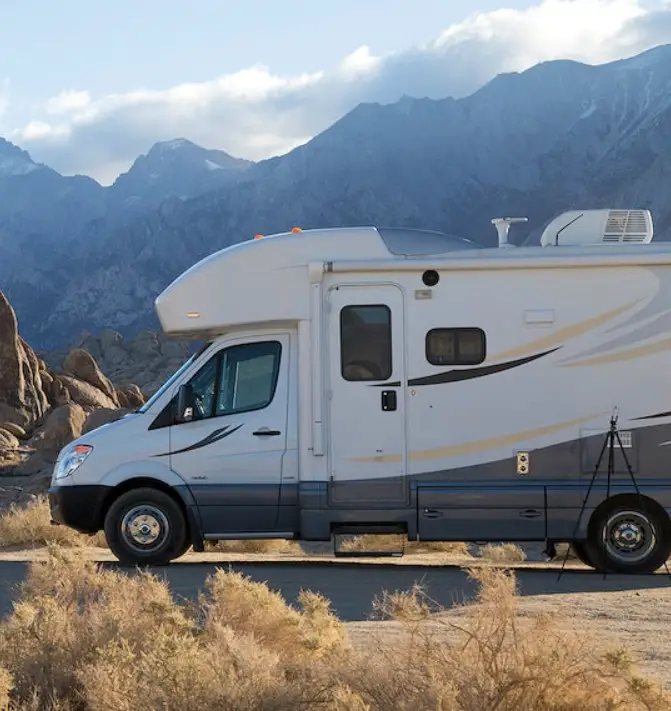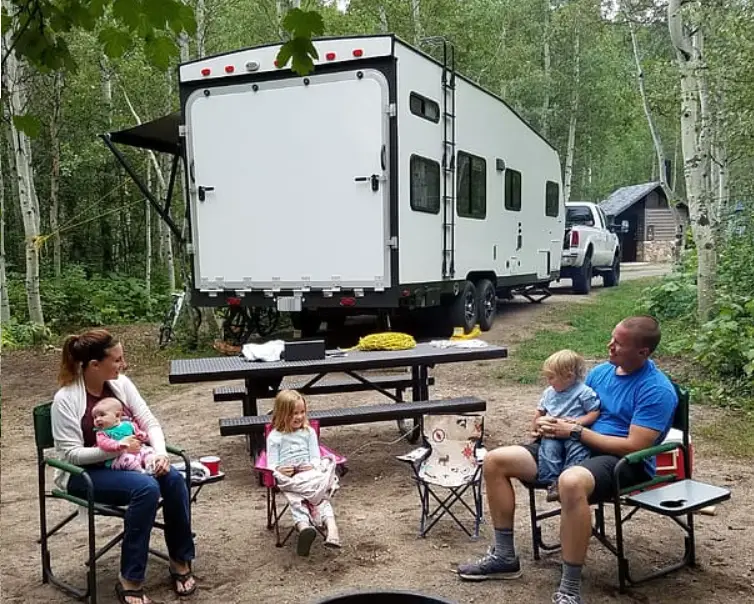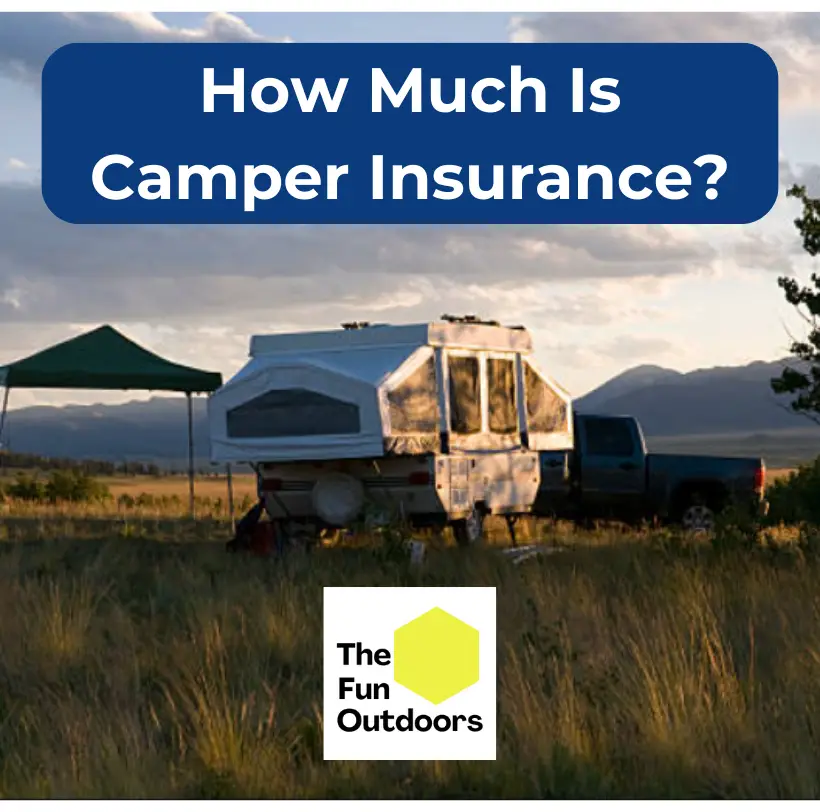Camper insurance is an essential investment for anyone who owns a travel trailer as it provides protection against unforeseen events like accidents, theft, or natural disasters. But how much is camper insurance?
How much camper insurance costs ranges from $200 to $900 per year, and varies depending on several factors, including the type of coverage you choose, the value of your RV, the type of camper you have, and your driving record.
Key Takeaways
- Camper insurance is a necessary investment for anyone who owns a travel trailer.
- The cost of camper insurance varies depending on several factors, including the type of coverage you choose, the value of your RV, and your driving record.
- When choosing camper insurance, it’s important to consider the type of coverage you need and ways to save money on your policy.
Having camper insurance, RV insurance, or travel trailer insurance is extremely important, and knowing all the factors that affect camper insurance prices can help you save money in this area. We cover everything you need to know in this guide.
How Much Is Camper Insurance?

Camper insurance is a type of insurance that covers a variety of recreational vehicles, including travel trailers, fifth wheels, and motorhomes. The cost of camper insurance can vary depending on a number of factors, including the type of RV, the amount of coverage you need, and your driving history.
The average cost of camper insurance is between $200 and $900 per year. This figure can vary significantly depending on the type of RV you have and the level of coverage you need.
When it comes to camper insurance, there are a few different types of coverage to consider. Liability coverage is the most basic type of coverage and is typically required by law. This type of coverage protects you if you are found to be at fault in an accident and covers the cost of any damage or injuries you cause to other people or their property.
In addition to liability coverage, there are a number of other types of coverage you may want to consider, including collision coverage, which covers the cost of repairing or replacing your RV if it is damaged in an accident, and comprehensive coverage, which covers the cost of damage to your RV from non-collision events such as theft, fire, or vandalism.
When shopping for camper insurance, it’s important to shop around and compare quotes from multiple providers to ensure you are getting the best coverage at the best price. Some insurance companies also offer discounts for things like safe driving, multiple policies, and RV club memberships, so be sure to ask about any available discounts.
What Kind Of Insurance Do You Put On A Camper?

When it comes to insuring a camper, there are several types of coverage that can be included in a policy. Here are some of the most common types of insurance for campers:
Liability Coverage
Liability coverage is the most basic form of camper insurance. It covers damages that you cause to other people or their property while driving your camper. This type of coverage is required by law in most states, so it’s important to have it in your policy.
Collision Coverage
Collision coverage pays for damages to your camper if you are in an accident with another vehicle or object. This type of coverage is optional, but it can be a good idea to have it if you have a newer or more expensive camper.
Comprehensive Coverage
Comprehensive coverage pays for damages to your camper that are not caused by a collision. This can include things like theft, vandalism, fire, and weather-related damage. Like collision coverage, comprehensive coverage is optional but can be a good idea for newer or more expensive campers.
Uninsured/Underinsured Motorist Coverage
Uninsured/underinsured motorist coverage protects you if you are in an accident with someone who does not have insurance or does not have enough insurance to cover the damages. This type of coverage is also optional, but it can provide valuable protection if you are in an accident with an uninsured or underinsured driver.
Personal Property Coverage
Personal property coverage pays for damages to your personal belongings inside your camper, such as clothing, electronics, and furniture. This type of coverage is optional, but it can be a good idea if you have a lot of expensive items in your camper.
Camper Insurance Costs By Coverage Type

When it comes to camper insurance, there are several coverage options available to suit different needs. The cost of insurance will depend on various factors, such as the type of camper, usage, and personal details of the owner. In this section, we’ll discuss the different types of camper insurance and their coverage options and costs.
Liability Only
Liability-only insurance covers the costs of damages or injuries to other people or their property in case of an accident where the owner is at fault. This type of insurance is the most basic and affordable option available. It is ideal for those who own older campers or those who use their campers infrequently. The average cost of liability-only insurance for a camper is around $125 per year.
Liability and Collision
Liability and collision insurance covers the costs of damages or injuries to other people or their property, as well as the camper itself in case of an accident where the owner is at fault. This type of insurance is more comprehensive than liability-only insurance and is suitable for those who own newer or more expensive campers. The average cost of liability and collision insurance for a camper is around $500 to $1,000 per year.
Liability and Comprehensive
Liability and comprehensive insurance covers the costs of damages or injuries to other people or their property, as well as the camper itself in case of an accident where the owner is at fault or in case of theft, vandalism, or natural disasters. This type of insurance is more comprehensive than liability and collision insurance and is suitable for those who own newer or more expensive campers and those who use their campers frequently. The average cost of liability and comprehensive insurance for a camper is around $800 to $1,500 per year.
Full Coverage
Full coverage insurance covers the costs of damages or injuries to other people or their property, as well as the camper itself in case of an accident where the owner is at fault or in case of theft, vandalism, or natural disasters. It also covers personal belongings inside the camper and provides roadside assistance and emergency expenses. This type of insurance is the most comprehensive and expensive option available. It is suitable for those who own high-end or luxury campers and those who use their campers full-time. The average cost of full coverage insurance for a camper is around $1,500 to $3,000 per year.
Factors Influencing Camper Insurance Cost

When it comes to camper insurance cost, there are several factors that come into play. Understanding these factors can help you make informed decisions about the right coverage for your camper and budget.
The Camper’s Type and Value
The type and value of your camper is one of the biggest factors that affect your insurance cost. Typically, the more expensive your camper is, the more you will pay for insurance. Additionally, the type of camper you have, such as a motorhome or a travel trailer, can also impact the cost of your insurance.
The Age And Condition Of Your Camper
The age and condition of your camper can also play a role in determining your insurance cost. If your camper is older and in poor condition, you may pay less for insurance. However, if your camper is new and in excellent condition, you may pay more.
How Often You Use It (Part Time Vs Full Time)
How often you use your camper can also affect your insurance cost. If you use your camper part-time, you may pay less than someone who uses their camper full-time.
Where You Live
Where you live can also impact your camper insurance cost. Insurance companies consider factors such as the crime rate and weather conditions in your area when determining your insurance premium.
Where You Store It
Where you store your camper when you’re not using it can also affect your insurance cost. If you store your camper in a secure, covered location, you may pay less for insurance than someone who stores their camper in an open area.
Your Driving Record
Your driving record is another factor that can impact your camper insurance cost. If you have a clean driving record with no accidents or incidents, you may pay less for insurance than someone with a history of accidents or claims.
The Coverage You Have On Your Tow Vehicle
The coverage you have on your tow vehicle can also affect your camper insurance cost. If you have comprehensive and collision coverage on your tow vehicle, you may pay less for insurance than someone with liability-only coverage.
Your Credit Score
Your credit score is another factor that can impact your camper insurance cost. Insurance companies may use your credit score to determine your insurance premium, with those with higher credit scores typically paying less.
Your Experience Driving An RV Or Pulling A Camper
Finally, your experience driving an RV or pulling a camper can also affect your insurance cost. If you have experience and a good safety record, you may pay less for insurance than someone who is new to driving an RV or pulling a camper.
Additional Considerations for Camper Insurance

When it comes to camper insurance, there are several additional considerations to keep in mind beyond the basic coverage options. Here are some factors to consider:
Roadside Assistance
Many insurance companies offer roadside assistance as an add-on to their policies. This can be especially useful for campers, as breakdowns can occur while on the road. Roadside assistance can help with things like tire changes, jump starts, and towing.
Theft and Vandalism
Unfortunately, theft and vandalism can happen to campers just like any other vehicle. Make sure your policy includes coverage for these situations.
Fire
Campfires are a common part of the camping experience, but they can also pose a fire risk to your camper. Look for a policy that includes coverage for fire damage.
Permanent Residence
If you use your camper as a permanent residence, you may need a different type of insurance policy. Be sure to discuss your living situation with your insurance agent to ensure you have the proper coverage.
Personal Effects
Many campers carry personal belongings like clothing, electronics, and camping gear. Look for a policy that includes coverage for personal effects in case they are damaged or stolen.
Replacement Cost
If your camper is damaged beyond repair, you’ll want a policy that includes replacement cost coverage. This will help cover the cost of a new camper.
Replacement Cost Personal Effects
In addition to replacement cost coverage for your camper, you may also want coverage for your personal effects. This will help cover the cost of replacing any personal belongings that are damaged or stolen.
Emergency Expense Coverage
If your camper is damaged or destroyed while on a trip, emergency expense coverage can help cover the cost of lodging, transportation, and other expenses.
Financing and Lender Requirements
If you financed your camper, your lender may have specific insurance requirements. Make sure your policy meets these requirements to avoid any issues.
Motor Vehicle Report
Your insurance company may check your motor vehicle report (MVR) before providing coverage. Make sure your driving record is clean to avoid higher rates or denied coverage.
RV Insurance Rates
RV insurance rates can vary widely depending on factors like the type of camper, its value, and your driving record. Be sure to shop around and compare rates from multiple insurance companies.
RV Insurance Policy
Make sure you understand the details of your RV insurance policy, including the coverage options, deductibles, and any exclusions.
Insurance Coverages
In addition to basic liability coverage, you may want to consider additional insurance coverages like collision, comprehensive, and uninsured/underinsured motorist coverage.
Average Cost of RV Insurance
The average cost of RV insurance is around $1,500 per year, but your costs will vary based on several factors. Be sure to get quotes from multiple insurance companies to find the best rates for your situation.
Overall, camper insurance is an important investment for protecting your vehicle and your personal belongings while on the road. By considering these additional factors, you can ensure you have the right coverage for your needs.
Ways To Save Money on Travel Trailer Insurance

When it comes to travel trailer insurance, there are several ways to save money without sacrificing coverage. Here are some tips to help you lower the cost of your travel trailer insurance:
Bundle Those Policies
One of the easiest ways to save money on travel trailer insurance is to bundle your policies. Many insurance companies offer discounts for customers who have multiple policies with them. For example, if you have auto insurance with a company, you may be able to get a discount on your travel trailer insurance by bundling the policies together.
Go For A Higher Deductible
Another way to save money on your travel trailer insurance is to choose a higher deductible. The deductible is the amount you pay out of pocket before your insurance kicks in.
By choosing a higher deductible, you can lower your monthly premium. Just make sure you have enough money set aside to cover the deductible in case of an accident.
Install Extra Safety Features In Your Camper
Many insurance companies offer discounts for safety features in your camper. Consider installing extra safety features such as an alarm system, GPS tracking, or a backup camera. These features can not only help prevent theft and accidents but can also lower your insurance premium.
Consider A Defensive Driving Course
Taking a defensive driving course can also help lower your travel trailer insurance premium. These courses teach you how to avoid accidents and drive safely on the road. Many insurance companies offer discounts for customers who have completed a defensive driving course.
Compare Quotes From Several Places
One of the most important things you can do to save money on travel trailer insurance is to shop around and compare quotes from several different insurance companies. Don’t just go with the first quote you receive.
Take the time to compare the coverage and pricing of several different companies to find the best deal.
Go Paperless
Many insurance companies offer discounts for customers who go paperless. By opting for electronic statements and communication, you can save money on your travel trailer insurance premium.
Pay In Advance
Paying your travel trailer insurance premium in advance can also help you save money. Many insurance companies offer discounts for customers who pay their premium in full rather than in monthly installments.
Ask For Extra Discounts (Like Military, Professional, Etc.)
Finally, don’t be afraid to ask for extra discounts. Many insurance companies offer discounts for military personnel, professionals, and other groups. If you think you may qualify for an extra discount, be sure to ask your insurance company about it.
By following these tips, you can save money on your camper insurance or travel trailer insurance without sacrificing coverage.

